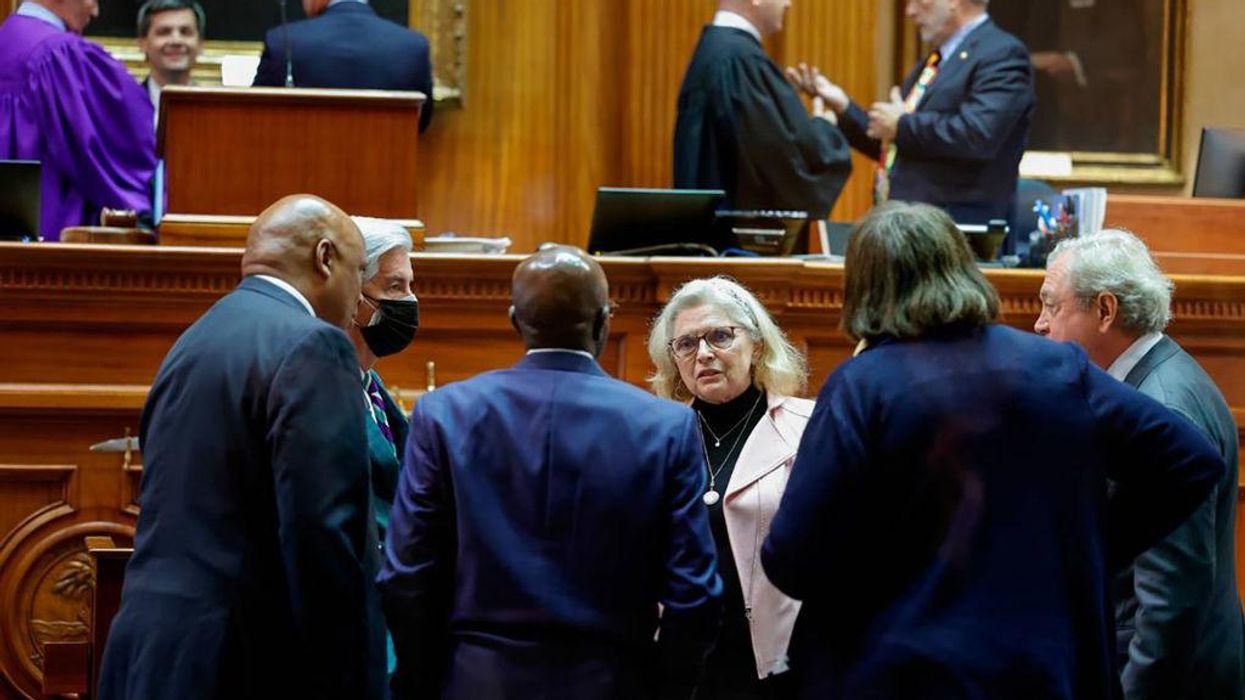
Tracy Glantz/The State/Tribune News Service via Getty Images

A little more than a week after the South Carolina state House passed a near-total abortion ban, the bill was killed Thursday during a special session of the state Senate, where it was opposed by moderate Republicans and Democrats.
Five GOP senators refused to support the legislation, which would have banned most abortions from the moment of conception, with exceptions for medical emergencies threatening the life of the mother. Those opposed included the three Republican women in the state Senate, Sens. Penry Gustafson, Sandy Senn, and Katrina Shealy, as well as state Sen. Tom Davis, who was chief of staff to former Gov. Mark Sanford (R) before he was elected to the Senate in 2009, and state Sen. Greg Hembree.
During debate, Shealy chastised her male colleagues and said they should ask the women in their lives before trying to pass an abortion ban without rape or incest exceptions, the Associated Press reported.
“You want to believe that God is wanting you to push a bill through with no exceptions that kill mothers and ruins the lives of children — lets mothers bring home babies to bury them — then I think you’re miscommunicating with God. Or maybe you aren’t communicating with Him at all,” Shealy said before senators amended the bill to permit abortions if a baby cannot survive outside the womb.
But Davis, the father of three daughters, said he would filibuster any attempt to pass abortion restrictions beyond the state's current six-week ban.
“The moment we become pregnant we lost all control over what goes on with our bodies,” Davis said, reportedly recounting what his daughters told him. “I’m here to tell you I’m not going to let it happen."
After the filibuster threat, Republican Majority Leader Sen. Shane Massey acknowledged the abortion ban could not pass.
"This is not where I wanted to be. I was hoping we'd be more aggressive, but it's clear to me the votes are not there in the Senate for an abortion ban before six weeks," Massey said, according to the Post and Courier. "We don't have the votes."
Instead, the Senate passed a measure strengthening South Carolina's fetal heartbeat law, which went into effect after the U.S. Supreme Court overturned Roe v. Wade. The law bans abortions after a fetal heartbeat can be detected by ultrasound, with exceptions for rape, incest, and the life of the mother. However, that law was temporarily blocked by the state supreme court after Planned Parenthood South Atlantic sued, arguing it violates privacy protections in the state constitution.
Lawmakers voted 27-16 in favor of a bill that amends language in the fetal heartbeat law that the state supreme court flagged in its ruling to issue a temporary injunction blocking the law last month. The Senate-passed bill also reduces the length of time a victim of rape or incest has to seek an abortion from 20 weeks to 13 weeks.
Current state law requires that allegations of rape and incest be reported to local law enforcement within 24 hours of a victim obtaining an abortion. The Senate proposed a new requirement that a DNA sample of the aborted child be taken by a physician and sent to law enforcement to be preserved as evidence within 90 days of the abortion, WRDW-TV reports.
Additionally, the Senate bill increases the number of doctors required to sign off on an abortion in cases of fetal abnormalities from one to two. The doctors must confirm that the baby could not survive outside the womb.
The amendments to the fetal heartbeat law will now head to the state House, where representatives will either concur with the Senate's changes or attempt to pass another version of the near-total abortion ban the Senate has already rejected. The latter action would likely result in no bill passing at all.
Gov. Henry McMaster (R) said in a statement he will sign whichever legislation lawmakers agree to.
"The Senate’s bill — just like the House bill — strikes an appropriate balance," McMaster spokesman Brian Symmes told the Post and Courier. "It is the governor’s hope that the House and Senate will soon come to an agreement and send a bill to his desk for signature."
In the meantime, the state's 20-week ban on abortion remains in effect.